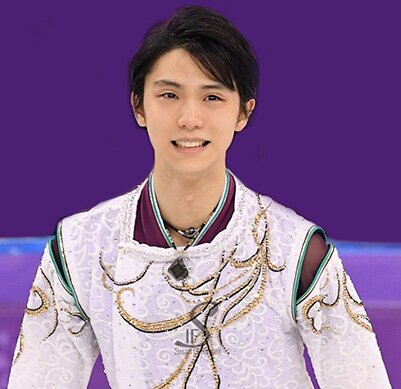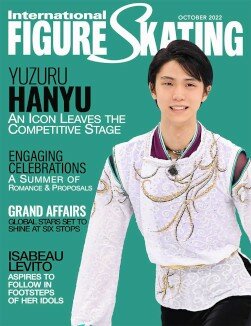

The Toronto Cricket Club held its annual Japanese media day on Aug. 30. Members of the Japanese press had the opportunity to watch Yuzuru Hanyu practice and ask him about his health, his new programs and plans for this season.
Hanyu′s new short program, choreographed by Jeffrey Buttle, is set to “Otonal” by Raúl di Blasio. This music was used by Johnny Weir for his long program in the 2004-2005 season.
Shae-Lynn Bourne crafted the long. “The free program is an arrangement of Evgeni Plushenko’s legendary program, ‘Tribute to Nijinsky,’ which (I am calling) ‘Origin,’” said Hanyu, who asked Plushenko at a summer show if he had any objections to him using the music. Plushenko and Weir are two of Hanyu’s idols.
“(Before) I had to meet other people’s expectations and get good results. I had many pressures like that. But, I am satisfied that as a result (of my Olympic success) I have been released from the pressure that I have to produce results. I think, and feel, that I can skate for myself from now on. I want to go back to my skating origins (roots).”
Hanyu is still recovering from a foot injury he suffered in November 2017 but said it is healing well. If all goes as planned, he will add a quad Axel — a jump he said he has not yet landed in practice — to his long program this season. “I plan to do it as the first jump in my free skate. It has to be one I can get a plus grade of execution score for. I want to aim for the best quad Axel.”
The quad loop, quad toe and quad Salchow have been incorporated into his programs. Hanyu said he is landing them better than he was before the 2018 Olympic Winter Games. “I am thinking I will not do the quad Lutz for a while because I have a little anxiety. I sometimes feel wrong when I put my toe pick in for the Lutz and flip, but I don’t feel any pain.”
The Japanese media asked Hanyu about Daisuke Takahashi returning to competition. Hanyu’s response: “Daisuke will always be someone I admire. I don’t feel strongly about him winning or losing, I am just very much looking forward to his performances and the chance to skate together at nationals.”
Hanyu also shared his thoughts on the new scoring system. “if I am allowed to say one thing, four minutes and 30 seconds was really four minutes but now, in fact, four minutes is harder. You may think because the number of jumps has been reduced (it is easier), but I have been feeling recently that four minutes is harder. It is busy. We can execute a triple jump in about 10 seconds, from preparation to landing. Then it leads to cutting 20 seconds, which makes us busier. I was thinking about that when I had to make a program — studying a lot and doing the research.
“There is a younger generation coming up, though some are only three years younger than me … I am looking forward to seeing how they will compete under the new system.”
Short video of Hanyu practicing at the Toronto Cricket Club
SOURCES: Asahi Sponichi Yahoo Japan




